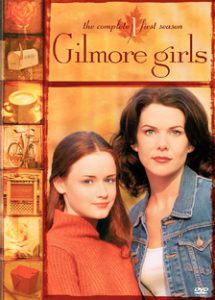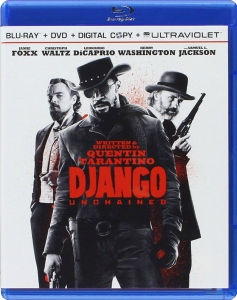I’m not naturally inclined to see a Quentin Tarantino film, but a couple of friends’ excitement about “Django Unchained,” combined with the generally positive reviews, got me to say “What the heck — I’ll give it a fair shot.” As I expected, it’s really violent — it’s not that I’m in danger of barfing in my popcorn bucket or suffering months of nightmares, it’s just that I don’t find extreme violence entertaining (unless it’s so over the top that it can only be interpreted as comedy). And also — the issue I was more worried about — it’s deliberately paced and clocks in at nearly three hours long.
“Django Unchained” is artistically impressive, but you have to go in with the mindset that you’re willing to take time with the movie. Rather than be anxious to get to the end of a scene and into the next one, you have to revel in things like the crackle of Django’s (Jamie Foxx) leather saddle or the scraping of foam off the top of a beer mug or Schultz (Christoph Waltz) straightening out his mustache. Also, even when the plot is at its apex, there’s an incredibly long sequence where slave plantation owner Calvin Candie (Leonardo DiCaprio) and Waltz converse and bargain like refined gentlemen over the dinner table. As viewers, we know a showdown is looming — more than once, we see Django reach for his gun when his beloved Broomhilda (Kerry Washington) is being objectified by Candie — yet it takes a while to get there. An impatient attitude will not serve you well with this movie.
Although it’s not my type of movie due to the pacing and violence, I found most of the characters interesting. Waltz is very good as a bounty hunter in this pre-Civil War era; German immigrant Schultz is so calm and clever in the way he leaves flustered frontiersmen in his wake that you can’t help but root for him. The fact that he frees Django from slavery and takes him under his wing also helps. Django is a coiled spring through the whole movie — we’re just waiting for him to get his revenge. And while that’s largely worth the wait, he’s not so much a character as he’s a slow-boil performance by Foxx. Samuel L. Jackson plays the film’s most striking character: Stephen, a lifelong slave who is utterly devoted to his master and who hates black people (referred to by the n-word throughout the film, by both blacks and whites).
Stephen’s view on life is similar to Kreacher from the “Harry Potter” films. While it might seem odd to bring up a fantasy film as a point of comparison to a movie about slavery, it should be noted that “Django Unchained” plays with real-world history almost as much as a fantasy film. Certainly, there are moments and characters that provide valid historical commentary, but this is by no means a historical document. It’s a style piece.
And it is very stylish, combining elements of a Western and of a “Southern,” and even of a comedy (a conversation among proto-KKK members about their eyeholes not lining up is one long joke — and a good one). “Django Unchained” is not shy about breaking from reality by using songs that came out 100 or 150 years after the time of the movie, or about splattering the plantation walls, cotton fields and horses’ manes with so much blood it’s as if machine guns were being used rather than pistols. (Then again, maybe guns from the 1840s blew people to pieces pretty effectively, too; I’m no gun expert.)

In the end, while it’s not really my thing, I can see why Tarantino fans will absolutely eat up everything about “Django Unchained”: The look, the music, the comedy, the drama, the violence, and even the slow pace that allows them to savor every moment.

